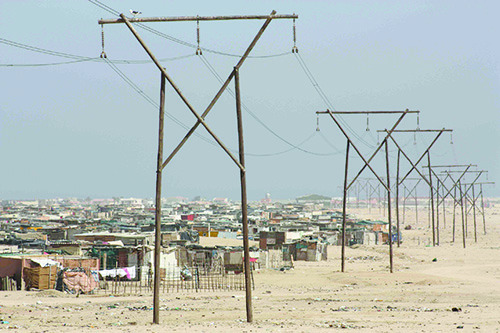The Ministry of Home Affairs, Immigration, Safety and Security has denied prohibiting click sounds in names.
This comes after a local publication on Friday reported that the ministry has done so.
Executive director of home affairs, immigration, safety and security Etienne Maritz over the weekend called the involved media report “false, malicious and misleading”.
“The ministry did at no point ‘ban’ the use of click sounds in names. Contrary to what the article says, it is and has never been the policy of the ministry or government to discriminate against any section of the community,” Maritz said.
He said the allegation that the “ministry’s registration system has sparked uproar by disallowing names with click sounds in official birth certificate registrations” is incorrect.
“The journalist went further to state that the ministry’s recent stance aims to simplify record-keeping by asserting that click sounds could potentially lead to confusion and inconsistencies in official documentation,” Maritz said.
“The ministry would like to put it on record and make it categorically clear that these statements are false, malicious and devoid of any truth,” he said.
“The public is therefore cautioned not to entertain this kind of misinformation,” he said.
The report cites the case of a woman whose daughter’s name was incorrectly spelled on her ID card, who visited the ministry on Thursday to correct this.
“It must be noted that as far as the birth certificate of the applicant is concerned, the name was correctly spelled since the birth certificate is handwritten, as opposed to the ID card, which is the machine which requires the clicks and special characters to be translated,” Maritz said.
He said the name was not misspelt.
“After talking to the applicant’s mother, the ministry took note of her complaint and informed her that the ministry will attend to the matter with the supplier of the machines in order to ensure that all the missing characters used in Namibia are included,” the executive director said.
Maritz said after the matter of missing characters was brought to the attention of the ministry, a meeting was convened with the supplier of the machines used to print ID cards.
“Unfortunately, the woman was seemingly not satisfied, despite our assurance that the matter would be attended to, and decided to approach the media.
“The reporter, without contacting the ministry to verify the veracity of the information, decided to publish the article, which is full of inaccuracies,” he said.
WORK IN PROGRESS
According to Maritz, with regards to the missing characters, the ministry is currently working in collaboration with the University of Namibia in identifying all the clicks and special characters used in Namibia.
“It must be noted that some clicks and characters have already been translated,” he said.
Stay informed with The Namibian – your source for credible journalism. Get in-depth reporting and opinions for
only N$85 a month. Invest in journalism, invest in democracy –
Subscribe Now!










